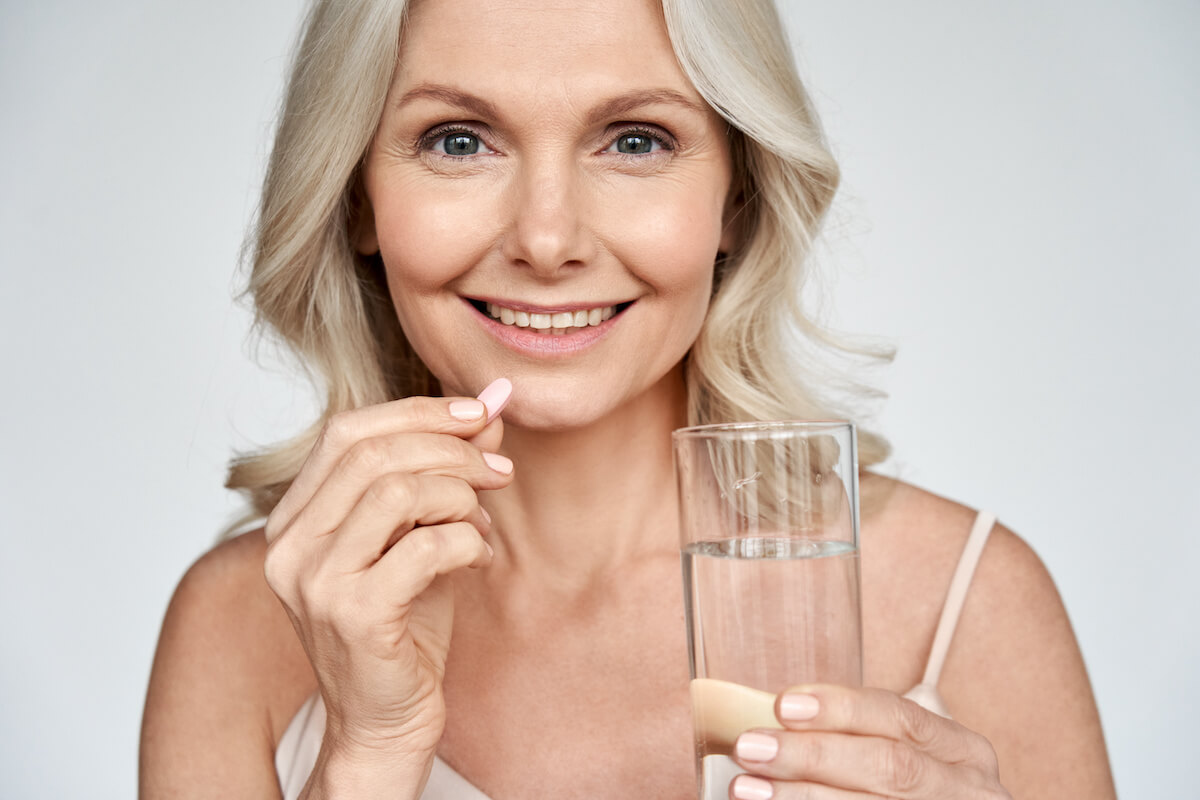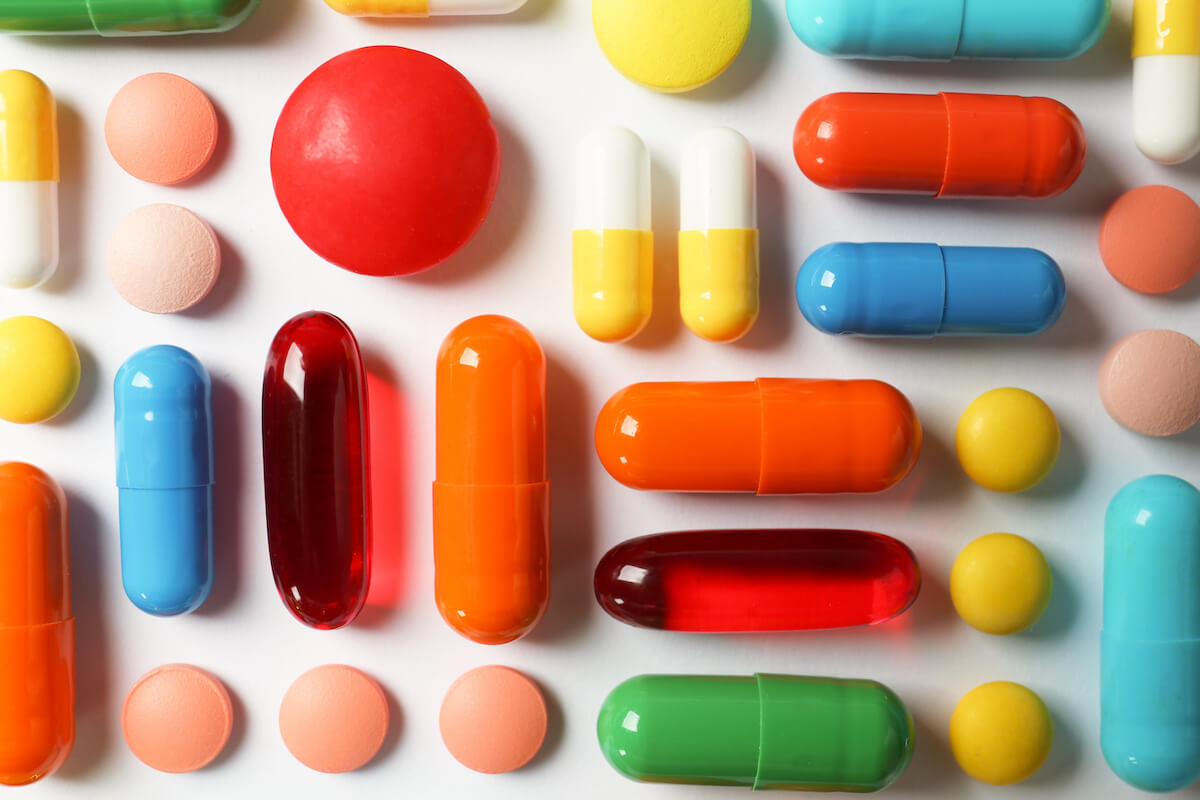
12 Nov Boost Your Health and Energy: 11 Best Supplements for Women
Healthcare for women is a hot topic these days — and for good reason. Women are busier than ever, with many juggling work, an extended family, and a home. And though women’s bodies have similar needs to men’s in some ways, you also have extra requirements. The best supplements for women take care of your overall health and keep you in the best shape throughout your busy day.
Let’s look at why women can benefit from supplements, what the best ones are, and what they can do for you. We’ll also explore what to look for when buying a supplement, so you can make an informed choice.
Why Do Women Need Supplements?
Women’s health begins with a healthy and balanced diet. That means plenty of whole foods that can give you the essential nutrients you need to keep you going through your day. However, very few women get all the nutrients they need from food sources.
For starters, you may not eat enough of the right foods, especially vegetables and fruit. Then, add the fact that food these days is not the high-quality source of nutrients it used to be, and there’s a good chance you need some dietary supplements to top up. That’s why it’s important to know what the best supplements for women are.
What Are the 11 Best Supplements for Women?

Women need an array of essential vitamins and minerals throughout the day. Let’s look at the most important ones that you may need to add to your supplement routine.
Vitamin A and Vitamin C
Vitamin A and vitamin C are both immune-boosting antioxidants that help fight free radicals and reduce cell damage. Vitamin C is also essential for protein synthesis, so if you want to maintain a healthy body — especially strong muscles, joints, and tendons — you need to make sure you get enough.
You’ll find vitamin A in dairy products, carrots, sweet potatoes, and berries, as well as in green veggies like broccoli and spinach. Vitamin C is found in citrus fruits, strawberries, black currants, guava, broccoli, peppers, and leafy green vegetables. Both of these nutrients are often found in multivitamin supplements, but you can also get them on their own.
B Vitamins
The B vitamins are water-soluble essential nutrients and they include:
- B1 or thiamine
- B2 or riboflavin
- B3 or niacin
- B5 or pantothenic acid
- B6 or pyridoxine
- B9 or folate (see more on this below)
- B12 or cobalamin
- Biotin
The vitamin B nutrients together support brain function and help the body produce energy to keep you going each day, and you especially need them if you work out intensively.
Each of the B vitamins also has other specific functions. For example, vitamin B2 helps to lower blood pressure, vitamins B6, B9, and B12 reduce your risk of strokes, heart attacks, and blood clots, and biotin keeps your hair healthy, which is why it’s so often found in hair products.
You can get vitamin B from vegetables, fruit, and many whole grains, but vitamin B12 you can only get from milk, fish, or meat. B vitamins are also a common addition to fortified foods.
If you’re on the mature side, your body won’t absorb B12 from food as well as it could, so it’s worth considering at least a B12 supplement. The B vitamins are also often sold as a B-complex, which provides all of these critical nutrients.
Vitamin D
Many women are deficient in vitamin D because it’s difficult to get in high enough quantities from whole foods. Your body needs it to fight off infection, to support both the innate and adaptive immune systems, and to regulate your blood sugar.
Vitamin D also helps your body absorb all-important calcium, which supports strong bones as you get older, reducing your risk of osteoporosis. And research indicates that calcium and vitamin D together may help with weight loss.
The few foods that do provide it include salmon, tuna, and fortified milk or orange juice. Your body also makes vitamin D when exposed to sunlight, but most women don’t get enough sun. And as you get older, your body doesn’t process vitamin D as well as it used to. All in all, there’s a good chance you need a vitamin D supplement (which is often sold as vitamin D3).
Calcium
Calcium is essential for bone health, which is especially important for women, as they are four times more likely to develop osteoporosis than men — reason enough for calcium to be one of the best supplements for women.
You start losing bone mass as you age and the rate of loss increases for menopausal and post-menopausal women. Calcium is important in your early years too — you establish most of your bone mass by the time you’re 18.
Calcium also keeps your cells functioning, makes sure your heart keeps pumping, and helps with blood clotting.
Milk, cheese, and other dairy products are rich in calcium, and it’s also often added to fortified foods. There’s a good chance you probably still need a calcium supplement though, especially if you’re slightly older.
Folate
Folate — or vitamin B9 — supports metabolism as well as DNA, cell, and tissue growth. Your body also needs it to produce red blood cells, which are critically important as they move energy and oxygen around your body. Without enough red blood cells, you may suffer from folate deficiency anemia, which makes you feel weak, tired, and lightheaded.
Folate is an especially important prenatal supplement for pregnant women, and it’s also critical while breastfeeding. Your developing baby needs a lot of folate, and if they don’t have enough, they’re at increased risk of a birth defect like spina bifida or a cleft lip. The challenge is that you need enough folate in the first few weeks of pregnancy, when you may not even know that you’re pregnant, which is why it’s recommended that all women of childbearing age supplement with folate.
Green vegetables like kale, spinach, broccoli, and avocado are great sources of folate, as are egg yolks, liver, peas, beans, and orange juice. The synthetic version of folate is called folic acid, and it’s found in fortified foods and folic acid supplements.
Iron
Iron is definitely one of the best supplements for women, because you lose it every month during your period. It’s also used up during pregnancy and breastfeeding.
Iron helps to produce red blood cells and if you don’t get enough, you may end up with anemia and its associated symptoms like low energy, headaches, chest pain, and brain fog. To avoid that, you need to replace that lost iron.
You can get iron from red meat, seafood, beans, lentils, and spinach. Bear in mind though that your body doesn’t absorb iron from plant-based sources as well as from animal-based ones. Iron is also often added to fortified foods. You probably don’t eat enough iron-rich foods though, so it’s really worth considering adding an iron supplement to your daily routine.
Collagen
Collagen is another one of the best supplements for women. Your body is held together by connective tissue, all of which contains collagen — from your joints, ligaments, and tendons to your skin. Your bones, organs, and muscles also need collagen to stay healthy.
Collagen production decreases as we mature, so we need more if we want to avoid signs of aging like wrinkles or osteoarthritis. It’s also helpful if you’re extremely active — which can put extra strain on your joints, tendons, and ligaments — or simply if you suffer from joint pain.
Collagen is made by combining amino acids, the most important being glycine and proline. You can get glycine from many proteins, but especially gelatin and chicken skin, and proline is found in foods like egg whites, dairy products, and cabbage.
If you’re older than 20, there’s a good chance you’ll need to supplement as well. Look out for high-quality supplements like Glaxon Wonder Collagen Protein, which contains Ingredient Optimized ioCollagen. Ingredient Optimized technology increases the absorption of collagen, so you need less of it than you would of non-optimized collagen.
Probiotics
A healthy gut is an excellent foundation for a strong body and a resilient immune system that fights off all kinds of infections. And, ironically, to fight off bad bacteria, we need plenty of good bacteria. Those good bacteria are called probiotics.
Probiotics support our immune health and help our body to digest and absorb the nutrients we need from the food we eat. They also support brain and heart health and help manage our mood. And if we’ve been on antibiotics — which destroy both the beneficial and the less healthy microbes in our system — we need probiotics to restore our gut bacteria to balance.
Whole food sources of probiotics include yogurt, cottage cheese, kombucha, kefir, sauerkraut, and kimchi. If you’re not getting enough from your food, look for a good probiotic supplement. If it includes prebiotics — which provide food for the probiotics — that’s a bonus.
Omega-3 Fatty Acids
Omega-3s — otherwise known as EPA (eicosapentaenoic acid) and DHA (docosahexaenoic acid) — have so many benefits that they really are one of the best supplements for women. They support immune health, protect your eyes from macular degeneration, help to prevent depression and anxiety, reduce inflammation and the risk of heart disease, improve absorption of calcium to keep your bones strong, support joint health, keep your skin healthy, and reduce menstrual pain, among many other things.
Your body doesn’t make omega-3 so you need a regular supply. You can get EPA and DHA from oily fish like sardines, tuna, or salmon, or from fish oil. If you prefer to stick to plant-based food, avocados or walnuts, and pumpkin, flax or chia seeds are all good sources.
That said, most women don’t eat enough omegas from their food, so topping up with an omega-3 supplement is a really good idea. Just make sure to choose a high-quality brand that’s free of heavy metals and other contaminants.
Multivitamins
Taking a multivitamin is an easy way to get many of the essential vitamins and nutrients we’ve discussed, as well as others. Look for one that includes:
- Calcium
- Magnesium
- Folate
- Zinc
- Iron
- Vitamin A
- A range of B vitamins
- Vitamin C
- Vitamin D
- Vitamin E
- Vitamin K
Zinc, magnesium, and vitamin K2 are good additions to a multivitamin. All three support bone health, which becomes ever more important to women as they age.
Omega-3s, probiotics, and collagen are usually sold as separate supplements, so you’re unlikely to find them in a multivitamin.
How to Choose the Best Supplements for Women

When it comes to supplements — as any dietician will tell you — quality matters and it’s worth paying a bit more to get the best you can afford.
Because supplements are regulated differently from medicine by the U.S. Food and Drug Administration (FDA), it’s also important to buy from a reputable supplier and to know what you’re looking for. Try to avoid supplements that contain:
- Added sugar or artificial sweeteners — natural sweeteners like monk fruit or stevia are fine
- Artificial colors or flavors
- Common allergens like soy or gluten
- Preservatives
- Heavy metals
Do your research before you buy and also ask around to find out which brands work best.
Bear in mind that some supplements interact with medications, so it’s also a good idea to consult a dietitian or other healthcare provider, especially if you’re dealing with a specific health condition. Also, get advice if you’re concerned about any side effects you experience. It may be that a particular supplement just isn’t right for your body.
Choose the Best Supplements for Women to Boost Your Energy and Health
As a woman with an active and busy life, your health needs to be a priority. The best supplements for women support a strong and healthy body, no matter what your stage of life. Knowing what each of the supplements can do for you, and choosing high-quality brands, helps you put your money where it will count the most.


